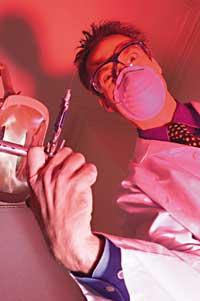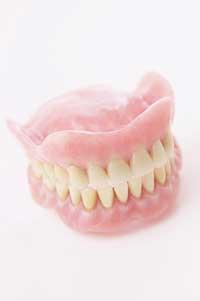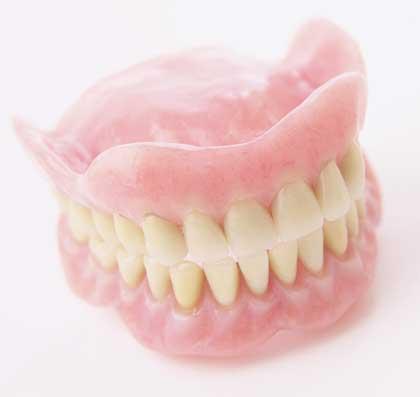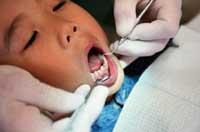GMOs for a healthy mouth
2005/01/09 Galarraga Aiestaran, Ana - Elhuyar Zientzia

The U.S. food and drug organization has authorized a local company to continue developing the method they have devised to eliminate cavities. This means that clinical tests will be started shortly to test your technique. What is this technique based on?
The problem is that bacteria present in the man's mouth have to do directly with the formation of cavities. One of these bacteria is Streptococcus mutans, which feeds on the sugar contained in the foods we eat. So far there is no inconvenience. But when you eat sugar, lactic acid remains as a residue, which attacks tooth enamel. Once the enamel is damaged, the other bacteria are easily inserted into the tooth and damage the dentin. Thus the cavities arise.
To combat it, researchers have created a special Streptococcus. By transforming the original bacteria, once metabolized the sugar have obtained a bacterium that substitutes lactic acid for another substance. This substance, called muttin 1140, is characterized by not causing any damage to the tooth enamel. Moreover, 1140 kills non-transgenic bacteria that are the first to blame for cavities.

The introduction of transgenic bacteria in people's mouths represents caries agents, thus eliminating the risk of cavities. That is, at least, the opinion of the researchers, and this is based on the new technique they propose to prevent cavities.
Laboratory tests
To test the efficacy and safety of transgenic bacteria, researchers have conducted numerous tests, but always in animals. They started 30 years ago and especially in rats have seen the consequences of introducing these bacteria into the mouth.
For example, in one of these tests rats were divided into three groups. Those in the first group were introduced into the mouth the normal Streptococcus mutans that produce many lactic acids and few non-acidic compounds. In the second group, genetically modified bacteria were introduced to prevent the formation of lactic acid. Finally, the third group was left uninfected as a control.
After eight weeks of food containing sugar, the mouths of rats were carefully analyzed. The idea was to see to what extent the teeth were damaged. And the result was that those infected with GM bacteria had a healthier mouth than others. In addition, it was proven that transgenic bacteria replaced the original ones, but that they do not affect other types of bacteria present in the mouth.
Next step

Now, the company that works with the bacteria wants to test its influence on people. After receiving approval from the entity that grants the authorizations for the conduct of the clinical tests, they are available to start the same. However, they want to act cautiously to avoid security problems. Therefore, the injected bacteria will be special and need an amino acid not present in the mouth of humans. Therefore, test participants will also need to take that amino acid for bacteria to live. If they passed to another's mouth they could not survive, because there they would not find that amino acid.
If good results are obtained, the tests will be done with transgenic bacteria without that characteristic that they have applied to ensure safety. On the other hand, the company has announced the attendance to the session of both infected people and their partners to check whether there is transmission or not. That is, if transgenic bacteria pass from mouth to mouth, for example through kisses.
Request permission to kiss

This last issue has generated discussions and jokes. And in the USA. and Europe has a contrary view of GMOs in general: In the US they accept GMOs without problems, while in Europe they are not well seen.
Knowing this, the following question has come to mind: a person with GM bacteria in the mouth should warn before kissing someone? It seems a naive question, but it shows that, if GMO expansion is allowed, there may be a risk of spreading to everyone. What consequences would it have? It can be the subject of a science fiction story. However, the company's desire is for the technique to come out within 4-5 years. It seems that from then on we will not have to worry about cavities.
Last question: what will dentists then live on?
Published in 7K.

Gai honi buruzko eduki gehiago
Elhuyarrek garatutako teknologia






